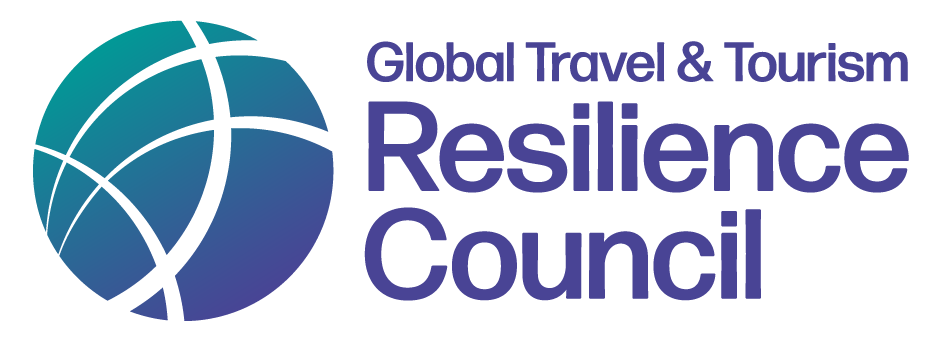Over the last three decades Arabian Travel Market has become a leading global event enabling growth for the travel and tourism industry. The Resilience Council is proud to be a conference partner of the trade show. Please find an outline of the sessions below. Speakers are updated subject to change.
28th April, 16:10 – 17:00, Global Stage
Circular Economy / Driving Competitiveness Through a Circular Economy
There is an increasing need for sustainable practices that not only benefit the environment but also drive competitiveness and innovation. In this session, we will explore how the circular economy can be a key strategy for businesses to achieve both environmental and economic goals.
The circular economy is a system where resources are used and re-used to their fullest potential, minimizing waste and maximizing value. In the travel industry, this can manifest in various ways such as reducing single-use plastics, implementing energy-efficient practices, and promoting local and sustainable tourism initiatives.
This session will feature case studies and best practices from leading companies in the travel industry who have successfully implemented circular economy principles into their business models. We want to share the economic benefits of transitioning to a circular economy, including cost savings, new revenue streams, and enhanced customer loyalty. How to overcome challenges when adopting circular economy practices, such as changing consumer behavior, regulatory hurdles, and infrastructure limitations.
Dr Hashil Al Mahrouqi, CEO, OMAN Tourism Development Company SAOC (OMRAN Group)
Nico Nicholas, CEO, ZEERO Group Limited
Caroline Moultrie, President, EMEA - MMGY Global
Christian Delom, President, CDConsult
Moderator: Neda Shelton, Head of Communications, Marketing & Corporate Affairs, Solutions Plus
29th April, 14:40 – 15:25, Global Stage
Redefining Tourism Products, including Cruise in Uncertain Times
In the midst of ongoing geopolitical conflicts, climate change, coastal erosion, natural disasters, drought, and famine, the tourism industry in the Middle East is facing unprecedented challenges.
With the increasing frequency of extreme weather events and environmental degradation, it is crucial for the travel industry to adapt and innovate. Participants in this session will discuss how to respond to climate change, mitigate the impact of coastal erosion, and prepare for natural disasters to ensure the safety and well-being of tourists. The Middle East is able to capitalize on the region's cultural and historical attractions while addressing the concerns of potential visitors regarding instability and conflicts. By redefining tourism products and experiences, destinations and businesses can alter some global perceptions and attract a diverse range of travelers.
Ghada Shalaby, Executive Director, Egyptian Hotel Association
Roberto Martinolli, Sr. Advisor to the President and CEO, Royal Caribbean Line
Alastair Crossley, Head of Travel, AXA Partners
Ibrahim Osta, Sr, Economic Growth and Trade Advisor, Chemonics International
Moderator: Joanna Kolatsis, Partner, Themis Advisory
29th April 15:30 – 15:40, Global Stage
In Conversation - Distribution Empowerment for SME’s
Aiding local SME’s through powerful digital distribution tools provided by some destinations is a key to success. The entire Omani travel supply chain across continents is supported through their Digital Travel Hub (DTH) which fuels global expansion and expands reach. Through Visit Oman's DTH, local, even remote partners gain immediate and seamless connectivity with a vast network of global distributors and online service providers, serving both B2B and B2C segments. Hear how this empowers local communities and why it is important.
Shabib Al Maamari, Managing Director, Visit Oman in conversation with Caragh Curran, MBA, Founder and Managing Director, Sustainable Tourism Consultants
April 29th 15:45 - 16:20, Global Stage
Implementing Regenerative Travel Programs
The notion of sustainable travel has gained significant traction over the past few years, with travelers becoming increasingly conscious of the environmental and social impacts of their journeys. However, sustainability is no longer enough – the travel industry must move towards regenerative practices that aim to restore and revitalize the destinations that travelers visit. What is the concept of regenerative travel and what are the key principles that distinguish it from traditional sustainable practices and how does it fit amongst current challenges such as climate change, biodiversity loss, and cultural preservation. Case studies will provide best practices and lessons learned. Business and destinations can create positive impact through regenerative initiatives, while also improving the overall travel experience for visitors. Our speakers will provide actionable steps for incorporating regenerative principles into their own businesses and destinations essential for the long-term health and vitality of the travel industry.
Dr. Ioannis Spanos, Vice President Sustainability, Expo City Dubai
Jennifer Croes, Conservation Scientist, Consultant, Jennifer Croes Consulting
Carlota Galvan Bisbal, Head of ESG, HBX Group
Caragh Curran, MBA, CEO, Sustainable Tourism Consultants
Noor Ahmad Hamid, CEO, Pacific Asia Travel Association
Moderator: Rylan Henriques, Partner, BCG
April 29 -16:25 – 17:00, Global Stage
Reimagining ESG in the Middle East: A Woman's Perspective
In recent years, the concept of Environmental, Social, and Governance (ESG) criteria has become increasingly important in the travel industry globally. Companies are under pressure to demonstrate their commitment to sustainability, diversity, and ethical business practices. However, the perspectives and experiences of women in this arena are often overlooked. In the Middle East, where cultural norms and traditions can impact women's participation in the workforce, it is crucial to highlight the unique insights and contributions that women can bring to the table when it comes to ESG initiatives.
The session aims to shed light on the role of women in shaping sustainability practices and social responsibility within the travel and tourism sector in the region. How women in the Middle East are innovating and reimagining ESG strategies to create a more sustainable and responsible travel industry. How to promote gender equality and empowerment, environmental stewardship, ethical supply chain management, and the importance of diversity and inclusion in the workplace.
Opening: Zina Bencheikh, Managing Director EMEA, Intrepid
Jane McFadzean, Sr. Director Global Sustainability and ESG, Trip.com
Sonia Huerta, Director of Insights and Tourism Advisory, Mabrian Technologies
Jessica Matthias, Senior Director for Sustainability, Sabre Corp.
Moderator: Neda Shelton, Group Head of Communications, Marketing & Corporate Affairs, Solutions Plus UAE; Executive Board Member, Middle East Public Relations
